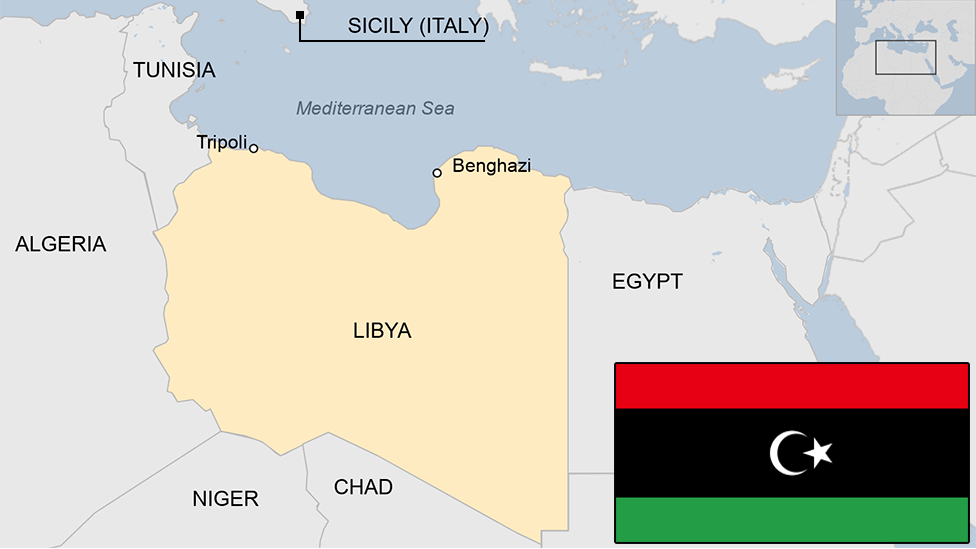Libya crisis: Doubts over UN unity government proposal
- Published
UN envoy Bernardino Leon said it had not been an "easy task" coming to an agreement on Libya's national unity government
MPs from Libya's rival parliaments have expressed doubts about a UN proposal for a national unity government, saying the announcement was premature.
It came after nearly a year of talks between the Islamist-backed parliament in Tripoli and the internationally recognised administration in the east.
Both parliaments, backed by rival militia groups, will have to vote on whether to accept the deal.
Libya has been wracked by instability since an uprising in 2011.
Long-time ruler Muammar Gaddafi was killed in the conflict which saw the formation of numerous armed groups and the intervention of Western powers.
The chaos has led to the growth of people traffickers helping migrants cross from African into Europe.
In August 2014, a loose alliance of militias, including Islamists, seized the capital, Tripoli, and reinstated the General National Congress (GNC) elected in 2012.
They were unhappy about the composition of a new parliament after elections in June 2014 - forcing it to flee to the eastern city of Tobruk.
UN envoy Bernardino Leon told a news conference in Morocco, where the talks were held, that Fayez Sarraj, from the Tripoli parliament, would be nominated as prime minister.
But GNC MP Abdulsalam Bilashahir told the BBC: "We are not a part of this [proposed] government. It means nothing to us and we were not consulted."
Ibrahim Alzaghiat, of the House of Representatives (HoR), based in Tobruk, said: "This proposed government will lead to the division of Libya and will turn it into a joke. Mr Leon's choice was unwise."

Analysis: Rana Jawad, BBC North Africa correspondent
MPs from rival camps appear to be finding rare common ground over their dismissal of the UN proposal, saying it is premature.
The rival parliaments have not even accepted the political agreement that embodies the proposed unity government, so announcing the names appeared rushed.
The UN pushed for it because there were still objections to the wider deal and mediators worried that talks would collapse.
But there is a danger that this latest move will backfire. Civilians are frustrated with the dangerous and chaotic realities ruling their lives. It is unlikely they are waking up more hopeful today.

UN chief Ban Ki-moon urged Libya's leaders "not to squander this opportunity to put the country back on the path to building a state that reflects the spirit and ambitions of the 2011 revolution".
Other posts in the proposed government include three deputies for the prime minister to represent Libya's east, west and south.
Mr Leon said he believed that the list of proposed ministers for the unity body could work.
Speaking in the Moroccan city of Skhirat, he said: "After a year of work in this process, after working with more than 150 Libyan personalities from all the regions, finally the moment has come in which we can propose a national unity government.
"All of them will work as a team," he added.
But he admitted there was an extremely tough road ahead.
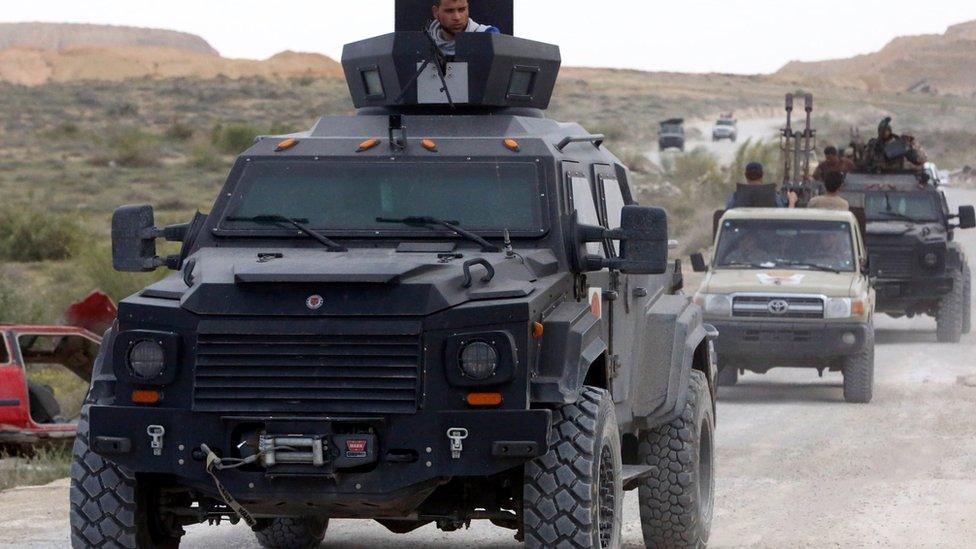
Areas of Libya are still controlled by rival militias
"The country is divided; the militias are not obeying directly any of the political representatives; they also have to join and support this political solution," he told the BBC's Newsday programme.
The Islamic State group also occupied "a big part of the central area in Libya and is the main threat for Europe," he said.
One of the proposed deputy prime ministers, Mussa al-Kouni, agreed: "The hardest part has just begun."
Libya's politicians have faced increasing pressure from the West to reach agreement on a unity government.
The violence and political chaos have allowed Islamist militants to gain ground in Libya and also seen human traffickers use the Libyan coast to send tens of thousands of migrants across the Mediterranean to Europe.
Libya's rival power bases
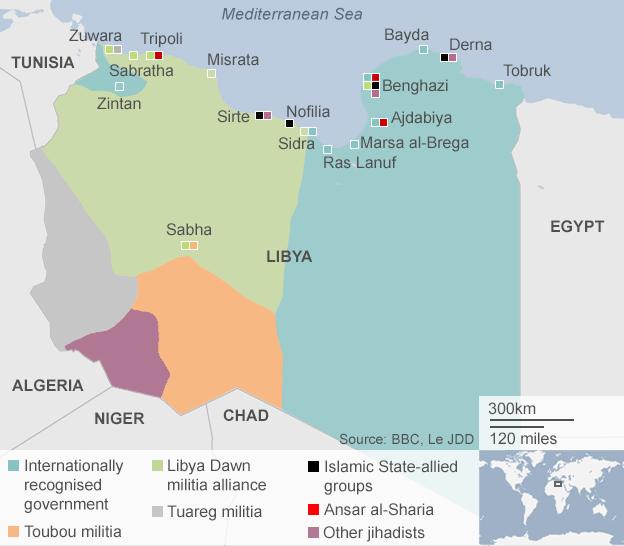
- Published23 January 2020
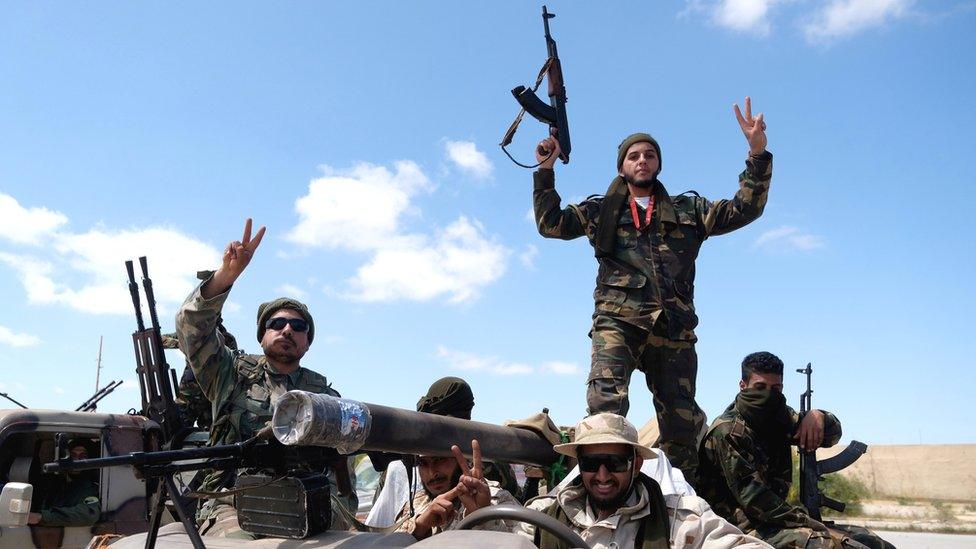
- Published11 March 2015
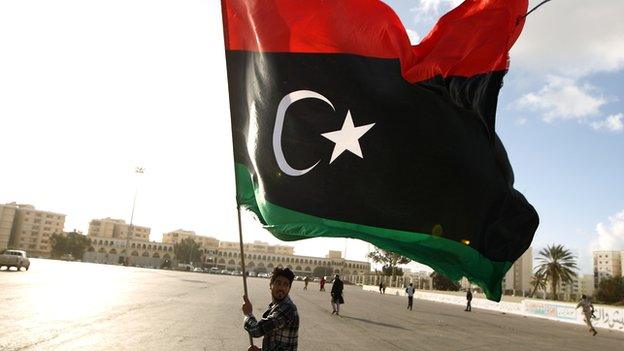
- Published13 September 2023
